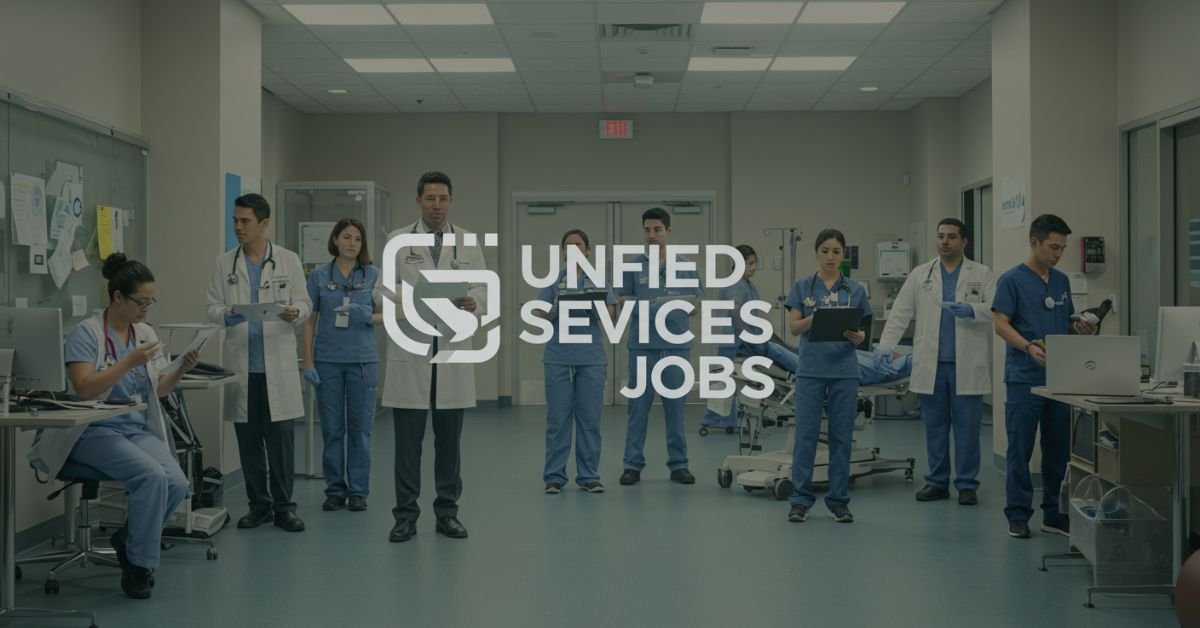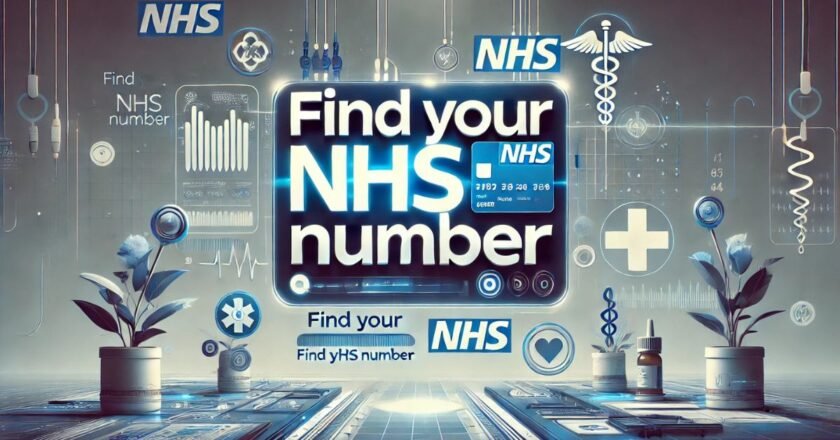The healthcare industry is rapidly evolving, and with it, the demand for skilled professionals is at an all-time high. Among the most promising career paths in healthcare are those offered under the umbrella of unified health services jobs. These roles span a wide range of specialties and offer rewarding opportunities for individuals seeking stability, growth, and purpose in their work. In this comprehensive guide, we will explore the top opportunities in unified health services jobs, how to qualify for them, and tips to land the best positions in this thriving sector.
What Are Unified Health Services Jobs?
Unified health services jobs refer to a broad category of healthcare roles that operate within an integrated system designed to provide holistic patient care. This system brings together various healthcare services—including clinical care, administrative support, and health education—under one organizational structure to improve efficiency and patient outcomes.
Key Characteristics of Unified Health Services:
- Integration of medical, behavioral, and social services
- Emphasis on patient-centered care
- Use of technology for data sharing and communication
- Focus on preventive care and chronic disease management
Examples of Unified Health Services Jobs:
- Registered Nurses (RNs)
- Medical Assistants
- Health Information Technicians
- Physical Therapists
- Behavioral Health Specialists
- Administrative Coordinators
- Medical Billing and Coding Specialists
- Occupational Therapists
- Case Managers
These jobs are essential to ensuring that patients receive coordinated and continuous care. As the healthcare sector continues to prioritize integrated services, unified health services jobs are becoming increasingly crucial.
Why Choose a Career in Unified Health Services?
Choosing a career in unified health services jobs offers multiple benefits:
Job Security and Demand
Healthcare is a recession-proof industry, and unified health services roles are in high demand due to an aging population and a greater focus on preventive care.
Competitive Salaries
Many unified health services jobs offer above-average salaries and comprehensive benefits packages, including health insurance, retirement plans, and paid time off.
Diverse Opportunities
From clinical roles to administrative positions, there are numerous career paths to explore.
Professional Growth
Most employers in this sector offer ongoing training and development programs, making it easier to climb the career ladder.
Meaningful Work
Working in unified health services means contributing to improved health outcomes and quality of life for patients.
The Growing Demand for Unified Health Services Jobs
The demand for unified health services jobs is fueled by several key trends:
Aging Population
With people living longer, there is a growing need for comprehensive healthcare services that address multiple chronic conditions.
Technological Advancements
Electronic Health Records (EHR), telemedicine, and health informatics are transforming healthcare delivery, creating new job opportunities.
Shift Toward Preventive Care
Healthcare systems are focusing more on prevention and wellness, increasing demand for roles like health educators and care coordinators.
Policy and Regulatory Changes
Government initiatives like value-based care and the Affordable Care Act have emphasized integrated healthcare delivery.
Top Roles in Unified Health Services Jobs
Let’s dive deeper into some of the top unified health services jobs you shouldn’t miss:
1. Registered Nurse (RN)
- Median Salary: $77,600/year
- Education: Associate’s or Bachelor’s degree in Nursing
- Certification: NCLEX-RN
RNs are at the frontline of patient care. They assess patient needs, administer medications, and coordinate care with physicians and other healthcare providers.
2. Medical Assistant
- Median Salary: $37,190/year
- Education: Certificate or Associate’s degree
Medical assistants perform both clinical and administrative tasks, including taking vital signs, scheduling appointments, and maintaining medical records.
3. Health Information Technician
- Median Salary: $46,660/year
- Education: Associate’s degree in Health Information Management
- Certification: RHIT (Registered Health Information Technician) preferred
These professionals manage patient data, ensuring it is accurate, accessible, and secure.
4. Physical Therapist
- Median Salary: $95,620/year
- Education: Doctor of Physical Therapy (DPT)
Physical therapists help patients recover from injuries and improve mobility through customized therapy plans.
5. Behavioral Health Specialist
- Median Salary: $48,520/year
- Education: Bachelor’s or Master’s degree in Psychology or Social Work
Behavioral health specialists provide mental health support, conduct assessments, and develop treatment plans.
6. Case Manager
- Median Salary: $73,300/year
- Education: Bachelor’s degree in Nursing or Social Work
- Certification: Certified Case Manager (CCM) preferred
Case managers coordinate patient care across multiple providers, ensuring continuity and efficiency.
7. Occupational Therapist
- Median Salary: $85,570/year
- Education: Master’s degree in Occupational Therapy
Occupational therapists help patients regain daily living skills and adapt to physical limitations.
8. Medical Billing and Coding Specialist
- Median Salary: $45,240/year
- Education: Certificate or Associate’s degree in Medical Coding
They ensure healthcare providers are reimbursed for their services by coding medical procedures and diagnoses accurately.
Emerging Roles in Unified Health Services Jobs
Telehealth Coordinator
Manages virtual care services, ensuring smooth delivery of remote consultations.
Health Informatics Specialist
Uses data analytics to improve patient care and streamline operations.
Patient Navigator
Assists patients in understanding their treatment options and accessing resources.
How to Qualify for Unified Health Services Jobs
Educational Requirements
- Entry-Level Roles: High school diploma or certification programs
- Mid-Level Roles: Associate’s or Bachelor’s degrees
- Advanced Roles: Graduate degrees and specialized certifications
Certifications and Licenses
Many roles require specific licenses or certifications, such as:
- NCLEX-RN for nurses
- RHIT for health information technicians
- State licensure for therapists and counselors
Soft Skills
- Communication
- Teamwork
- Empathy
- Attention to detail
- Problem-solving abilities
Career Advancement in Unified Health Services
Continuing Education
Many organizations offer tuition reimbursement and support for further education.
Professional Development
Attend workshops, earn advanced certifications, and join professional associations.
Leadership Opportunities
Pursue roles such as department head, clinical director, or healthcare administrator.
Where to Find Unified Health Services Jobs
Several platforms can help you discover unified health services jobs:
- Job Boards: Indeed, Glassdoor, and LinkedIn
- Healthcare Staffing Agencies
- Company Websites: Check the career pages of hospitals and health systems
- Professional Associations: American Nurses Association, AHIMA, etc.
Tips to Land the Best Unified Health Services Jobs
1. Tailor Your Resume
Highlight relevant skills, certifications, and experience. Use keywords from the job description.
2. Network
Attend industry conferences, join online forums, and connect with professionals on LinkedIn.
3. Prepare for Interviews
Research the company, practice common interview questions, and be ready to discuss your qualifications.
4. Stay Updated
Healthcare is constantly evolving. Engage in continuous learning through webinars, courses, and certifications.
5. Use Staffing Agencies
Leverage staffing agencies that specialize in healthcare placements to find exclusive job openings.
Benefits Offered in Unified Health Services Jobs
Health Insurance
Comprehensive coverage including medical, dental, and vision.
Retirement Plans
401(k) plans with employer matching contributions.
Paid Time Off
Vacation, sick leave, and paid holidays.
Work-Life Balance
Flexible scheduling and remote work options for certain roles.
Challenges and How to Overcome Them
High-Stress Environment
- Practice self-care
- Seek support from peers and supervisors
Keeping Up with Technology
- Attend training sessions
- Stay informed through industry publications
Managing Patient Expectations
- Communicate clearly
- Set realistic goals with patients
FAQs about Unified Health Services Jobs
What are the most in-demand unified health services jobs?
Registered nurses, medical assistants, and health information technicians are among the most sought-after roles due to the growing need for coordinated care.
How can I start a career in unified health services without experience?
Entry-level positions such as medical assistant or administrative support roles often require minimal experience and can serve as a gateway to more advanced jobs.
Are unified health services jobs only in hospitals?
No, these jobs are found in clinics, rehabilitation centers, long-term care facilities, and even remote telehealth settings.
Do unified health services jobs offer remote opportunities?
Yes, roles like health information technician and telehealth support can often be performed remotely.
How often should I renew my certifications?
Certification renewal varies by profession. For instance, RNs typically renew licenses every 2-3 years, while RHIT credentials require renewal every 2 years.
Can I transition from a non-healthcare job into unified health services?
Yes, especially into administrative or support roles. With additional training or certification, you can transition into clinical roles as well.
What is the career outlook for unified health services jobs?
According to the Bureau of Labor Statistics, healthcare jobs are projected to grow 13% from 2021 to 2031, much faster than the average for all occupations.
Conclusion
Unified health services jobs offer a pathway to a stable, fulfilling, and impactful career in healthcare. Whether you are just starting or looking to advance your career, there are abundant opportunities across clinical and non-clinical roles. By understanding the qualifications, leveraging the right job search strategies, and committing to professional growth, you can secure a rewarding position in this dynamic field.
Start exploring unified health services jobs today and take the first step toward a career that truly makes a difference.

Zoe Rae is a dynamic writer at SpinUpBusiness.com, where she covers a broad range of topics from business strategies to lifestyle, technology, and more. With a keen eye for detail and a passion for making complex ideas simple, Zoe crafts content that informs, engages, and inspires her readers.



